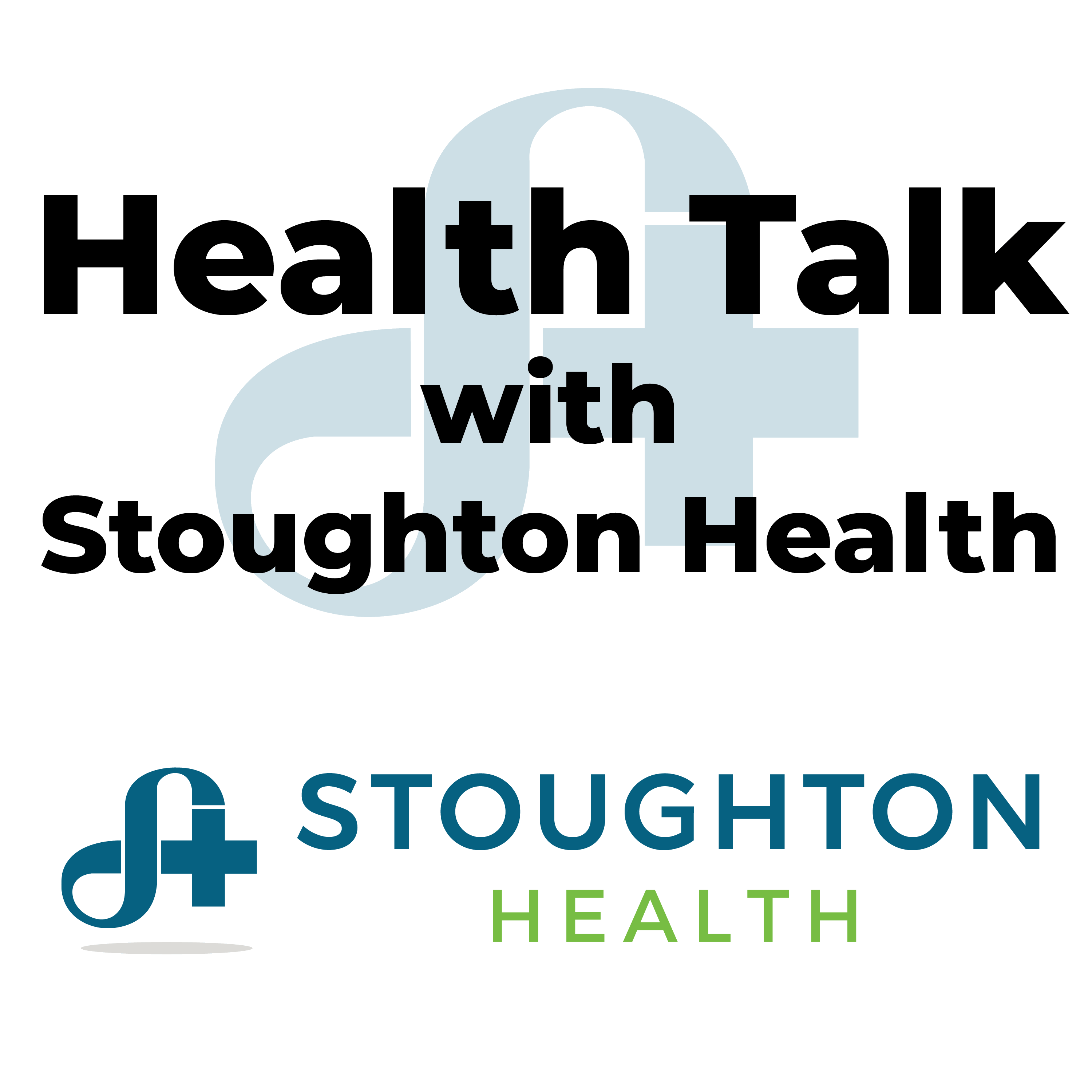Urgent Care
McFarland Urgent Care Clinic
Monday – Friday: 8 a.m. – 8 p.m.
Saturday & Sunday: 9 a.m. – 5 p.m.
Oregon Urgent Care Clinic
990 Janesville Street
(608) 835-5373
Monday – Friday: 5 p.m. – 10 p.m.
Saturday & Sunday: 10 a.m. – 8 p.m.
Stoughton Hospital Urgent Care
900 Ridge Street
(608) 873-6611
6 a.m. – 11 p.m. daily
(including weekends & holidays)
Urgent Care Clinics
Three Convenient Urgent Care Locations
Stoughton Health accepts over 160 area insurance plans including Dean Health Plan and Quartz.
Experiencing symptoms of COVID-19?
If you are not experiencing symptoms of illness requiring immediate medical attention, please use the testing options below. This allows hospital staff to take care of critically ill patients and reduces the risk of spreading COVID-19 to patients who have a weakened immune system.
-
Contact your doctor
-
Pre-register for a community testing site
-
Make an appointment at a pharmacy
-
Purchase a home testing kit
McFarland Urgent Care Clinic
5614 US HWY 51, McFarland, WI
(608) 838-8242
Hours of Service:
Monday – Friday: 8 a.m. – 8 p.m.
Saturday & Sunday: 9 a.m. – 5 p.m.
McFarland Urgent Care Holiday Schedule: We are closed on Easter, Memorial Day, July 4th, Labor Day, Thanksgiving Day, Christmas Eve, Christmas Day, New Year’s Eve and New Year’s Day.
Oregon Urgent Care Clinic
990 Janesville Street
(608) 835-5373
Hours of Service:
Monday – Friday 5 p.m. – 10 p.m.
Saturday & Sunday 10 a.m. – 8 p.m.
Oregon Urgent Care Holiday Schedule: We are closed on Easter, Memorial Day, July 4th, Labor Day, Thanksgiving Day, Christmas Eve, Christmas Day, New Year’s Eve and New Year’s Day.
Stoughton Health Oregon Urgent Care is a provider-based location and subject to a facility fee. Patients that receive care at our Oregon Urgent Care location can expect to see two charges: one for the facility fee and one for the provider care.
Stoughton Hospital Urgent Care
900 Ridge Street
(608) 873-6611
Hours of Service:
6 a.m. – 11 p.m. daily
(including weekends & holidays)
Urgent Care Overview
Urgent Care is designed for urgent medical needs that are not life-threatening, but still require prompt attention. Additionally, the service is intended to fill the gap between care provided during regular physician office hours and the Emergency Department. Urgent Care is not intended to replace a family physician. Typical minor illnesses or injuries that are appropriate include:
- Ear pain
- Eye irritation
- Fever or flu
- Minor cuts, scrapes and bruises
- Minor broken bones and fractures (i.e. fingers, toes)
- Skin rashes and infections
- Sore throat or cough
- Sprains and strains
- Urinary burning
- Vomiting, diarrhea or dehydration
When to Seek Emergency Care
- Alcohol or drug intoxication or overdose
- Amputations or severe lacerations
- Bone fractures
- Facial or eye trauma
- Fever in newborn (less than 3 months old)
- Gunshot or knife wounds
- Heavy, uncontrolled bleeding
- Loss of consciousness
- Moderate to severe burns
- Poisoning
- Pregnancy-related problems
- Seizures or convulsions
- Serious head, neck or back injury
- Severe abdominal pain
- Severe chest pain
- Severe headache
- Shortness of breath or difficulty breathing
- Signs of heart attack or stroke
- Suicidal or homicidal feelings
When to Choose Urgent Care or ER
Listen to Our Health Talk Podcasts!

Welcome to Stoughton Health Talk
 According to the American Academy of Physicians-American Society of Internal Medicine, doctors should not prescribe antibiotics for coughs and sore throats and most colds, because they don’t help and their overuse is making them less effective against other infections.
According to the American Academy of Physicians-American Society of Internal Medicine, doctors should not prescribe antibiotics for coughs and sore throats and most colds, because they don’t help and their overuse is making them less effective against other infections.
The Centers for Disease Control and Prevention estimate that up to half of the 133 million doses of antibiotics administered daily outside hospitals may be unnecessary because they are being prescribed for viral infections that don’t respond to antibiotics.
Listen in as Andrew Dean, MD, an emergency medicine physician, explains what questions to ask your doctor if you think you may need an antibiotic.

Welcome to Stoughton Health Talk
 According to the CDC, in the United States each year influenza has resulted in between 9.2 million and 35.6 million illnesses, between 140,000 and 710,000 hospitalizations and between 12,000 and 56,000 deaths annually since 2010.
According to the CDC, in the United States each year influenza has resulted in between 9.2 million and 35.6 million illnesses, between 140,000 and 710,000 hospitalizations and between 12,000 and 56,000 deaths annually since 2010.
Getting an annual flu vaccine is the first and best way to protect yourself and your family from the flu. Flu vaccination can reduce flu illnesses, doctors’ visits, and missed work and school due to flu, as well as prevent flu-related hospitalizations. Increasing the number of people who get vaccinated each year helps to protect more people, including older people, very young children, pregnant women and people with certain health conditions who are more vulnerable to serious flu complications.
In this important segment, Anna Robb explains why it is vital to the public health and safety to get your annual flu shot and how it can help protect you and the ones you love.
Related Services
Wound Care Clinic
Emergency Care
News & Notes
Stoughton Hospital Foundation Celebrating 50 Years
On Thursday, June 27, the Stoughton Hospital...
Here for You Today, Planning for Tomorrow Stoughton Health Outpatient Center Campaign
Stoughton Hospital Foundation received a...
Stoughton Health Partners with AHEC Intern Program
Stoughton Health is pleased to announce its...

